On the morning of November 11th a report headlined ‘Gaza casualties: ‘Most of the children in my family photo are dead’’ was published on the BBC News website’s ‘Middle East’ page.
The report is credited to the BBC World Service’s population correspondent Stephanie Hegarty. A very similar report by Hegarty had previously appeared on October 31st on the BBC’s Turkish language website and on the BBC’s Spanish language website BBC News Mundo.
Since October 8th (the day after Hamas’ invasion of Israel, unprecedented slaughter of Israeli civilians and taking of hundreds of women, senior citizens and children hostage) Hegarty has been tweeting regularly on the topic of the war that began as a result of those Hamas actions. One tweet she has not seen fit to erase or correct refers to the incident in which a rocket launched by a Palestinian terrorist organisation caused an explosion in the car park of the Al Ahli hospital in the Gaza Strip.
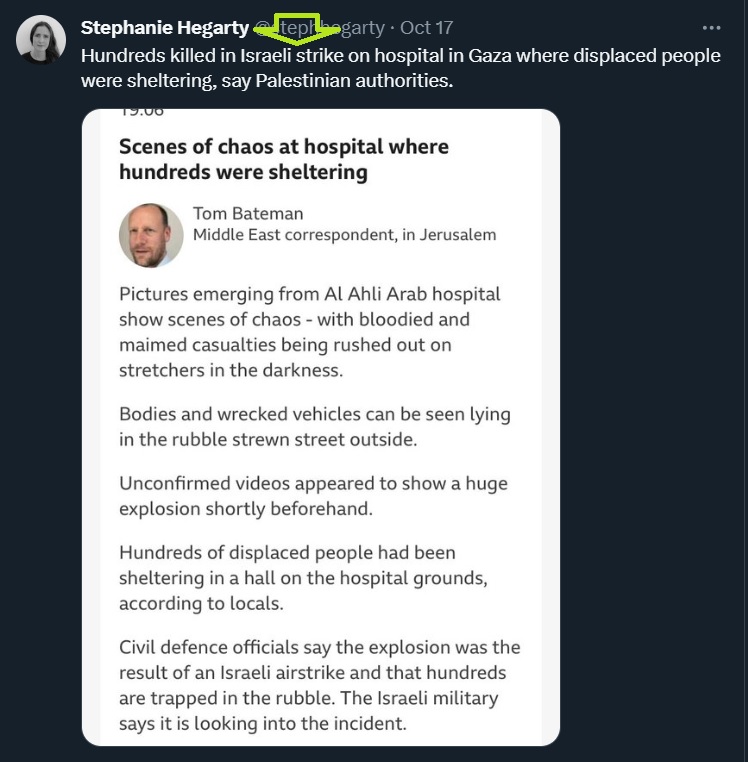
Hegarty has also repeatedly retweeted posts by the main contributor to her article, Ahmed Alnaouq.
“It was just another lazy, sunny Friday afternoon four years ago when Ahmed al-Naouq snapped this selfie with his family. But he remembers it well, especially now.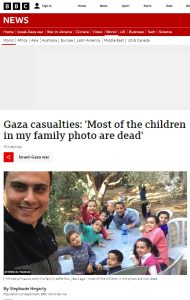
Under the shade of olive trees by his father’s house, his sisters and brothers got together with their children to eat, play and chat.
Taking a break from running around, the children were ready to eat when Ahmed captured them together. Now, most of them are dead, he says.
They were killed in an air strike which struck the family home on 22 October. In total, 21 people were killed including his father, three sisters, two brothers and 14 of their children.”
Hegarty later tells readers that “[t]he house was in the centre of Gaza in the town of Deir al-Balah” but refrains from informing her readers that Hamas places military assets such as rocket launchers, tunnels, command centres and weapons stores in civilian areas.
BBC editorial guidelines on the topic of ‘contributors’ affiliations’ state:
“4.3.12 We should not automatically assume that contributors from other organisations (such as academics, journalists, researchers and representatives of charities and think-tanks) are unbiased. Appropriate information about their affiliations, funding and particular viewpoints should be made available to the audience, when relevant to the context.”
Hegarty’s description of her main contributor reads as follows:
“Ahmed moved to London four years ago to work for an NGO and hasn’t been home since.”
BBC audiences are not informed that Ahmed Alnaouq is an outreach and advocacy officer in the ‘lobbying and advocacy’ department of the political NGO EuroMed Monitor. In 2015 that NGO – which lists known anti-Israel figures such as Richard Falk (chairman) and Noura Erekat on its board of trustees – initiated a project – of which Ahmed Alnaouq is part – called ‘We Are Not Numbers’, together with an American called Pam Bailey who is also associated with Code Pink.
In 2015 Bailey promoted that new project at the virulently anti-Israel website ‘Mondoweiss’ (where Ahmed Alnaouq has also been published). In that article she noted that Ahmed Alnaouq’s brother Ayman, who was killed during Operation Protective Edge in 2014, was “a resistance fighter with the [Hamas] Al-Qassam Brigades”. Other reports have also noted that fact but no mention of Alnaouq’s brother appears in the BBC’s articles.
EuroMed Monitor’s concern for human rights apparently does not extend to those of the Israeli citizens slaughtered, raped, tortured or taken hostage by Hamas. Its first statement concerning the current conflict was posted on October 9th under the headline ‘Israel takes revenge on Palestinian armed factions by mass killing civilians in Gaza’.
“In what appears to be retaliation against Palestinian armed factions, Israeli forces are mass-killing civilians in the Gaza Strip and subjecting them to collective punishment, said Euro-Med Human Rights Monitor in a statement.”
Since then, the NGO has produced tens of articles accusing Israel of ‘genocide’, ‘war crimes’, deliberately targeting civilians and more.
As well as contributing to the BBC (which he has previously criticised) and ITV on the subject of the recent deaths of members of his family, Alnaouq chose to give interviews to the October 7th massacre denier George Galloway, Electronic Intifada and the Hamas supporting outlet MEMO as well as to participate in an event held by the online media platform ‘Palestine Deep Dive’.
Ahmed Alnaouq’s record of political activism (which includes participation in the 2018 Hamas organised ‘Great Return March‘) should clearly have prompted Hegarty to inform its audiences about his obviously relevant “affiliations […] and particular viewpoints” in the reports in which he is extensively quoted.
Hegarty was however not the only BBC journalist to ignore the corporation’s editorial guidelines on impartiality: no information concerning “contributors’ affiliations” were provided to the readers of two previous items of BBC News website content featuring Ahmed Alnaouq:
‘Anguished UK Palestinians grieve for loved ones in Gaza’ by Ashitha Nagesh, October 31st 2023
‘The writers who reached out across the divide’ by Fergal Keane, November 6th 2023
At the bottom of the English language version of Stephanie Hegarty’s report, readers are told that it includes “Additional reporting by Husna Wahid”.
Husna Wahid’s Twitter account provides ample evidence of her political views on the topic to which the report to which she contributed relates, notwithstanding the BBC’s guidance on the personal use of social media which states:
“Everyone who works for the BBC should ensure their activity on social media platforms does not compromise the perception of or undermine the impartiality and reputation of the BBC, nor their own professional impartiality or reputation and/or otherwise undermine trust in the BBC.
Individuals working in news and current affairs (across all divisions) and factual journalism production, along with all senior leaders have a particular responsibility to uphold the BBC’s impartiality through their actions on social media and so must abide by specific rules set out in this guidance.”
And:
“Do not express a view on any policy which is a matter of current political debate or on a matter of public policy, political or industrial controversy, or any other ‘controversial subject’.”
And:
“Expressions of opinion on social media can take many forms – from straightforward posts or updates, sharing or liking content, following particular accounts or using campaigning or political hashtags. You should consider carefully every comment before posting.
Be wary of ‘revealed bias’, whether through likes or re-posting, so that a bias becomes evident…”
Wahid’s twitter feed includes three posts promoting inaccurate claims concerning the Al Ahli hospital explosion which, like her colleague, she has not seen fit to delete in the weeks since it became clear – even to the BBC – that Israel was not involved in the incident.
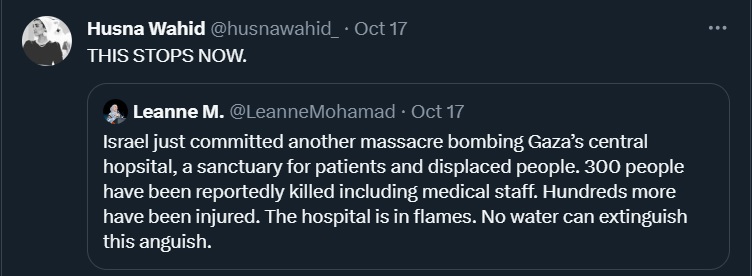

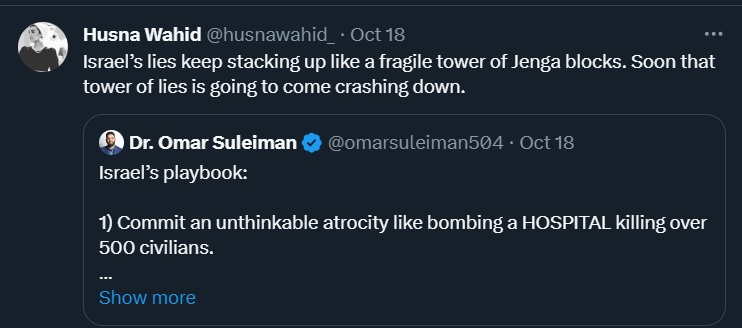
There is of course little point in senior BBC executives rushing around to do damage control in light of the considerable criticism of the corporation’s reporting on the current war between Israel and Hamas if its less senior staff continue to compromise the BBC’s reputation for impartiality by failing to comply with editorial guidelines concerning contributors’ affiliations and their own social media accounts severely undermine what is left of that reputation by promoting politically partisan opinions and blatant falsehoods.

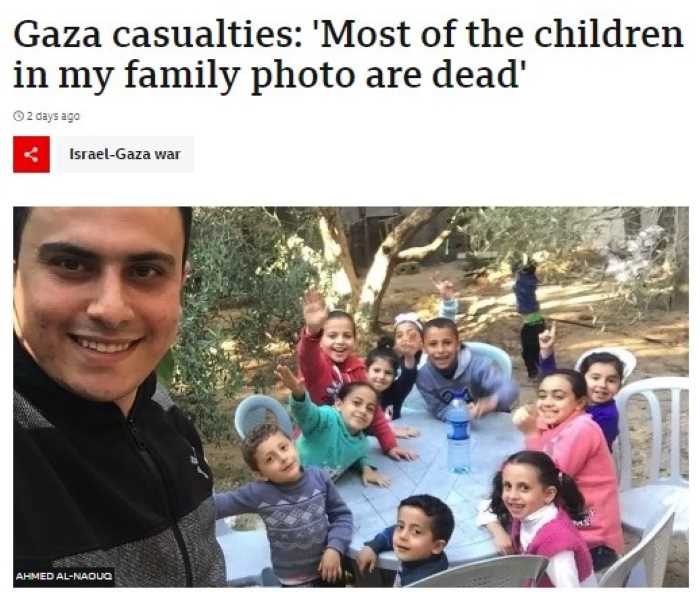
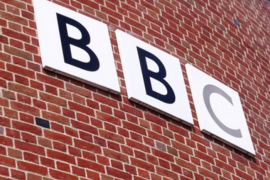
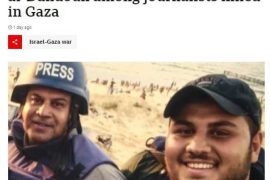
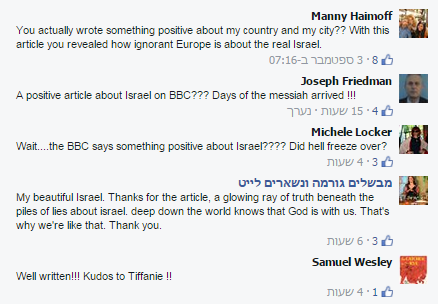

What is this “BBC’s reputation for impartiality” ? Everybody I know believes that it is simply Iran’s mouthpiece and should be defunded for treason.